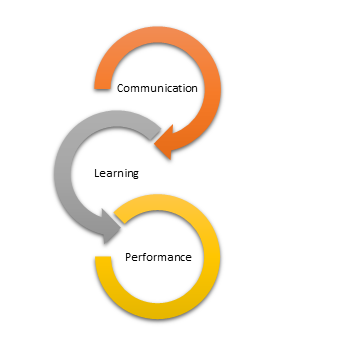 It’s amazing how much money is spent on strategy, process improvements and technology and not a lot on the one thing that can render all of them useless – Communication.
It’s amazing how much money is spent on strategy, process improvements and technology and not a lot on the one thing that can render all of them useless – Communication.
I’m not just talking about communication skills here, although it’s part. This is about building an environment and culture that encourages, no, require open communication.
In many organizations, a lot of learning opportunities are lost because of poor communication and poor communication exists because people do not have the necessary skills to create a culture of openness, honesty, engagement and humility. Yes, humility.
I have seen this too often. People are sent to training, whatever training, without understanding why they needed to go because their supervisors fail or avoided to tell them what they need to learn, yes, avoided.
I have also seen people who after attending training realized that a lot of things need to be changed but won’t do it because it means having an uncomfortable conversation with their bosses. And how many times did people go to their bosses with proposals for change only to be turned away? Many.
This brings forth the need to improve communication in the organization. When people communicate better, opportunities are explored, weaknesses are addressed and great ideas are capitalized on. What needs to be done to make all these happen? These are the gaps that need to be filled:
- Improve people’s confidence in speaking up. Training is important but it is not enough. Even if you train people how to be assertive ten times, they will still remain passive unless they feel that it is safe for them to be assertive. This means you need to…
- Train your leaders to create an environment that encourages speaking up, having honest yet respectful conversations that go all directions not just downward. They need to learn not just to listen but to create strategy that motivates maybe even incent people for sharing ideas or expressing their opinion. They need to learn to ask powerful questions that stimulates thinking. They need to learn to facilitate conversation so that people have ownership of the results of those conversations.
- Lastly, everyone in the organization needs to learn to manage themselves during conversation. They need to learn to receive as well as dish out opinion. They need to learn to speak as if they are right and listen as if they are wrong. In fact, they need to learn to appreciate being wrong. Learning can only happen if you realize you are receiving information that is better than what you previously hold. That’s why humility is important.
When people speak and listen better, when people do not hesitate to point out areas for improvement, when people find it easy to get together and talk about how to change things, they can change things, and if they are successful, the organization becomes successful.
ExeQserve offers learning interventions to help your team members communicate better. Check out these links:
- Building and Sustaining High Performance Teams Workshop
- Assertive Communication Training
- Team Learning
- Communication Essentials Workshop
Call us at ExeQserve if you wish to know more how we can help improve the communication culture in your organization.
Landline: 459-9603 / 846-8054
Globe: 0917-823-1316
Or email us at information@exeqserve.com








